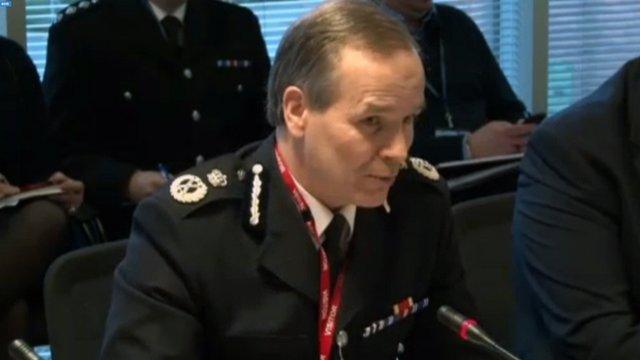Police Scotland search data not reliable says report
- Published
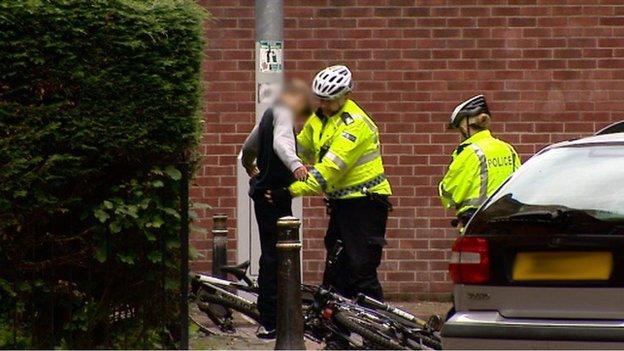
A report on stop-and-search said there was little confidence in the police data
On the eve of Police Scotland's second birthday, a damning report has been released regarding the quality of its stop-search data.
At the same time new data has emerged showing that dozens more children were frisked on Scotland's streets in December.
These figures - which took several months to obtain through a freedom of information request - reveal 36 minors were searched that month.
Of those, 16 were consensual - 81% of which resulted in the discovery of no contraband items.
The majority of these were related to alcohol and weapons - but they were largely unsuccessful searches (with 15% and 0% success rates respectively).
The data also reveals four one-year-olds were subjected to searches for drugs and weapons - interestingly, two of these consensual searches on these 'drug mules' were successful.
And it seems that even those on the other end of life's spectrum are susceptible to police frisks.
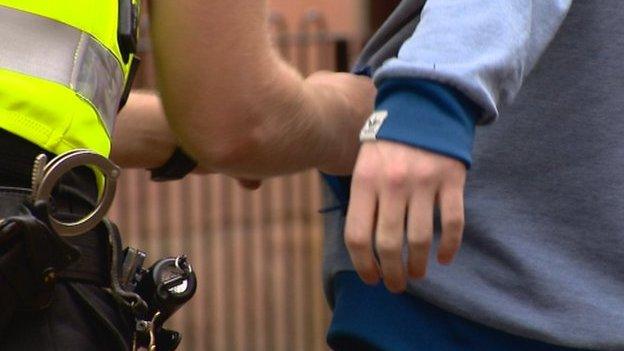
Police said they would stop searches on under-12s
Almost 40 octogenarians were also searched - and surprisingly half of them were found to be concealing booze, drugs or a weapon.
Pinch of salt
Now, this latest data does show the total monthly searches were at a nadir for 2014, and that searches of children were a third of what they were at the start of the year.
However, some critics may argue that 16 searches on minors are still 16 too many.
But a report released by the Inspectorate of Constabulary in Scotland says the Police Scotland data should be taken with a gargantuan pinch of salt.
HM Inspector of Constabulary Derek Penman said: "Due to the lack of guidance and processes, we do not have confidence in the stop and search data currently held by Police Scotland.
"It should not be relied upon to make informed decisions about future policy and practice in Scotland until an accurate baseline has been established.
"We do not consider it viable for Police Scotland to retrospectively improve the data quality of existing records."
The report outlines a litany of errors that have compromised the integrity of the force's data: the rushed development of a database which was not subject to routine quality assurance tests; a lack of data validation and quality control processes, and a lack of routine audits.
And Police Scotland recently admitted 20,000 records had been lost after a programmer pressed the "wrong button".
Backup database
In a freedom of information response to BBC Scotland, Police Scotland said the "small number of records" was affected between 6 May and 14 July - meaning it took 10 weeks to spot this error.
While the report acknowledges the "programming error" that occurred in May 2014, it fails to mention one key point.
An investigation by BBC Scotland revealed there were apparently backups of the stop-search database.
A response to a freedom of information request stated: "Police Scotland use an industry standard backup technology that backs-up the server, application and database on a nightly basis.
"The backup procedures have been in place since the system went live in April 2013."
This begs the question: why was a system update run on the 'live' database without first being properly tested on a backup copy and why did it take 10 weeks to spot the error?
The report makes clear that despite the claims that the wrong button was pressed no data was ever actually lost.
It says that although officers entered the data, the software update meant the data was never actually saved to the database.
HM Inspectorate of Constabulary recommend Police Scotland should review how to manage the development and testing of future IT upgrades.
Courting controversy over stop-search and armed police, it's been a wretched second year for Police Scotland.
Here's hoping the national force doesn't suffer from the 'terrible twos'.
- Published31 March 2015
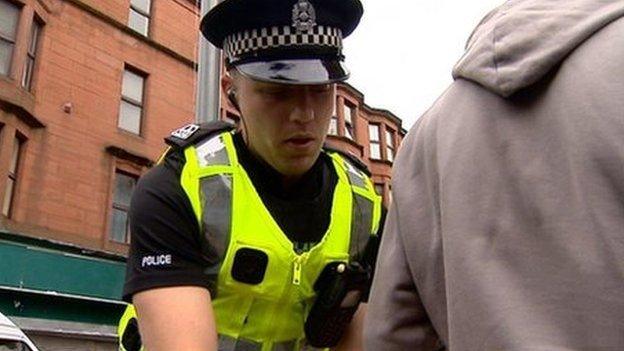
- Published19 February 2015
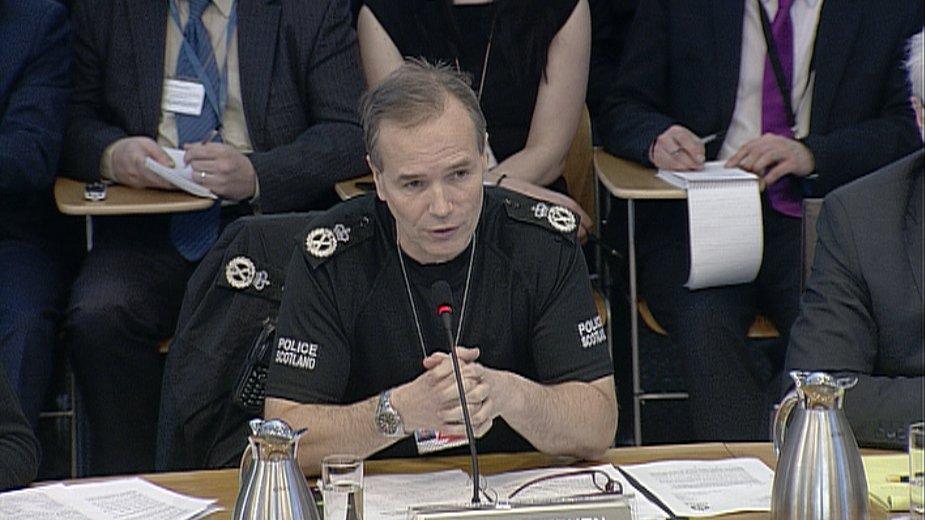
- Published13 February 2015
